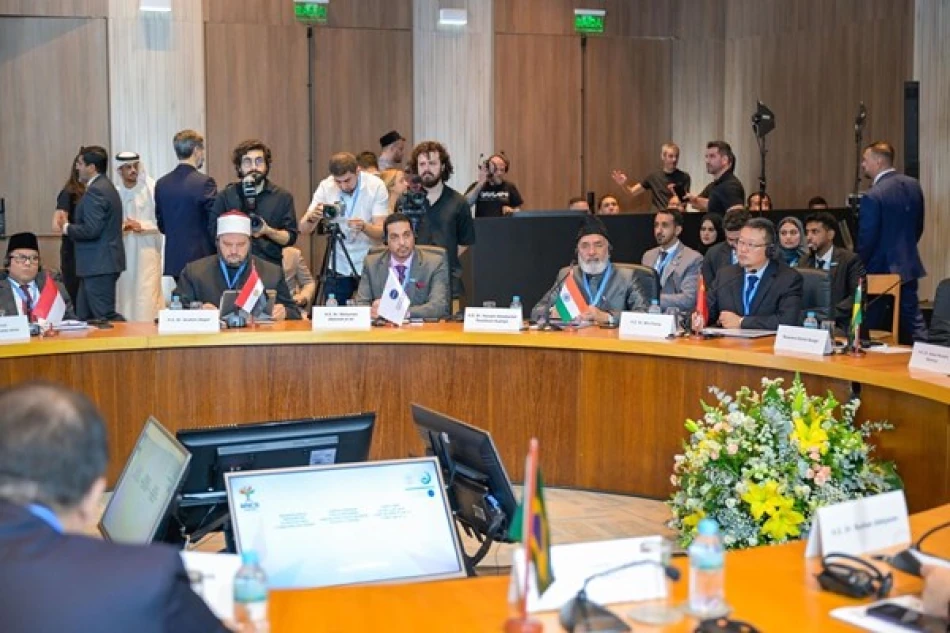
Trends Participates in the International 'Spiritual Silk Road' Conference
UAE Think Tank Champions Interfaith Dialogue at Major Brazil Conference
The UAE-based Trends Research & Advisory Center positioned itself as a key voice in global interfaith dialogue at the sixth International "Spiritual Silk Road" Conference in Rio de Janeiro, emphasizing how religious values can bridge cultural divides in an increasingly polarized world. The September 4-5 gathering brought together religious leaders, scholars, and thinkers from multiple continents to address extremism and promote coexistence through shared moral frameworks.
Religion as Soft Power in Geopolitics
Dr. Mohammed Abdullah Al-Ali, CEO of Trends Research & Advisory Center, delivered a keynote address that reframed religion beyond personal belief systems into a strategic soft power tool. His remarks highlighted how faith traditions, when properly understood, serve as stabilizing forces that promote security, coexistence, and peace both within nations and in international relations.
This perspective aligns with the UAE's broader diplomatic strategy of positioning itself as a moderate voice in the Middle East, leveraging interfaith dialogue to build bridges with diverse global partners. The country has increasingly used religious tolerance as a cornerstone of its international brand, exemplified by initiatives like the Abrahamic Family House in Abu Dhabi.
Universal Values Across Faith Traditions
Al-Ali emphasized a crucial point often overlooked in geopolitical discussions: all major religions, without exception, advocate for tolerance and coexistence. He argued that diversity becomes a source of strength when built on mutual respect, integration, and dialogue—a message particularly relevant as nations grapple with rising nationalism and cultural fragmentation.
Combating Extremism Through Proper Religious Interpretation
The Trends CEO directly addressed one of the most pressing challenges facing contemporary societies: religious extremism. However, his analysis shifted blame away from religious teachings themselves, instead targeting those who deliberately misinterpret tolerant religious values to serve radical ideologies.
This distinction is strategically important for countries like the UAE, which seek to combat extremism while maintaining legitimacy as Islamic nations. By separating authentic religious teachings from their extremist distortions, moderate Muslim nations can position themselves as authoritative voices against radicalization.
Regional Context and Competition
The UAE's participation in this Brazil-hosted conference reflects its competition with other regional powers for intellectual and religious leadership. While Saudi Arabia pursues its Vision 2030 modernization agenda and Qatar leverages Al Jazeera for soft power projection, the UAE increasingly relies on think tanks and academic institutions to shape global narratives around tolerance and moderation.
Research Diplomacy and Knowledge Partnerships
Beyond the conference presentations, Trends Research & Advisory Center showcased its publications and explored new research partnerships with international scholars and institutions. This approach represents a growing trend among Gulf nations to invest in knowledge production and intellectual diplomacy as tools of influence.
The center's participation in the accompanying exhibition and bilateral meetings with conference participants demonstrates how research institutions now serve dual roles: advancing scholarly understanding while simultaneously promoting their home countries' strategic interests and values on the global stage.
Building Bridges Through Academic Exchange
The emphasis on research partnerships and knowledge sharing reflects a broader recognition that sustainable interfaith dialogue requires institutional frameworks beyond ceremonial conferences. By establishing ongoing academic collaborations, organizations like Trends can create lasting networks that influence policy discussions and public opinion across multiple countries and regions.
Most Viewed News

 Layla Al Mansoori
Layla Al Mansoori






